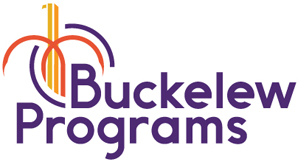Despite extreme reluctance to try counseling, a client learns the social-emotional skills that would turn her life around
– Sabrina

When Sabrina was in her early 40s, she felt herself sinking deeper and deeper.
Her mental health had felt precarious since her teens, when drugs, alcohol and strained personal relationships challenged her well-being. She grew estranged from her mother and sister following years of conflict. Then, in 2019, Sabrina’s father died after a long illness, and her brother died from suicide. Sabrina fell into an even darker place that left her feeling paralyzed.
She says she tried therapy many times before but felt it didn’t help much. “Just wasn’t my thing,” she says.
But now Sabrina was overwhelmed with grief, depression and the realistic concern that her unmanaged mental health challenges would cause her to lose her job and housing. And she lived alone without support.
“I didn’t want to be in that place,” she says.
Reluctantly, she accepted a referral for Buckelew Counseling, still not sure anything could pull her out of the black hole she had been fighting against for decades.
Throughout her young adult years, Sabrina’s mental health challenges included depression, paranoid thinking and suicidal ideation. She tried suicide twice, each time followed by short-lived counseling that she terminated. Drinking and substance use, which began in her teens, frequently led to blackouts. She says that at the time, it seemed “drinking helped more than talking to someone. It doesn’t really. But that’s what I thought.”
Now she knows she was putting herself – and others – in grave danger. By the time she came to Buckelew for counseling, she’d earned two DUI charges.
For a long time, Sabrina didn’t think she had anyone to turn to for help. The crippling depression made accessing the help she needed feel overwhelming. But then Sabrina’s doctor recommended Buckelew Counseling and made her promise to schedule an appointment.
Sabrina’s Buckelew therapist introduced her to dialectical behavioral therapy (DBT) skills. DBT is an evidence-based modality that helps people regulate their cognitive and emotional responses by identifying triggers and building skills for healthy responses. Sabrina learned to identify and slow or stop negative thought patterns. She also learned how the power of self-reflection and gratitude aids in understanding areas of strength to foster progress. Working with her therapist, Sabrina approached each concern one step at a time and set realistic, time-sensitive goals to move forward toward tangible goals.
What had seemed overwhelming soon became an achievable actionable list: renew a license, find a healthy living environment, engage in a 12-step program to address substance use. Sabrina’s self-esteem improved as she accomplished each goal.
Sabrina has made meaningful, lasting changes in the three years she has worked with her Buckelew therapist. She says she no longer feels alone and without a lifeline when she teeters at the edge of “that place.” She continues honing DBT skills that help her manage her mental health and enrich her life. She is equipped to tackle practical tasks that represent progress.
She also is rebuilding relationships with her mother and sister and now lives with her mother so that they can support one another and share expenses. Her increased self-esteem has helped her build healthy new friendships, some through her 12-step program. She even considers dating a possibility in her future.
Since starting therapy, Sabrina also earned two positive job reviews. And a promotion.
“At first, I didn’t even want a therapist from Buckelew,” she says. “But now, I don’t know how I would have gotten to where I am without one.”
